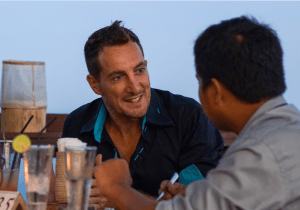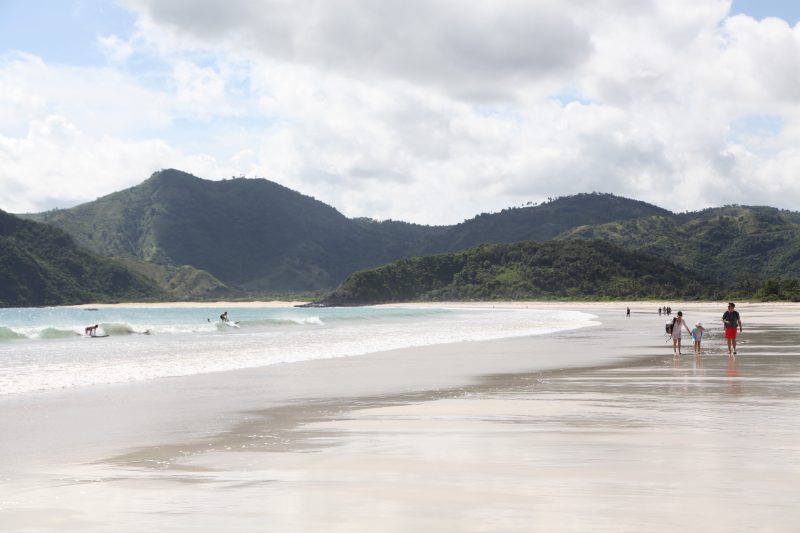An experienced entrepreneur shares some important tips you should take note of before starting up a business or putting your money in Lombok.
Today, it is often referred to as ‘Bali’s little sister’. But just a decade ago, not many tourists knew about Lombok; it existed only in the shadow of its big sister’s fame and popularity. Things have changed in recent years, however, and since the launch of a new international airport in 2011, tourists have been arriving in Lombok en masse. In turn, this has led to an ever-increasing number of hotel rooms and property developments on the island.
Mandalika Resort, the government’s ambitious project to bolster the local tourism industry, has boosted confidence levels of investors, who are now coming from all corners of the globe to grab a slice of Lombok’s tourism pie. Experts say this formerly quiet island is now predicted to swell in overseas arrivals. So far, so good. Sounds like a good time to invest, right?
This — along with the island winning all sorts of halal tourism awards — is the kind of story you often hear about Lombok. Expat investors with money to burn routinely wonder how to jump on the Lombok bandwagon. More importantly, however, they should be trying to understand the risks and rewards of putting money into the up-and-coming travel destination.
Jean-Marc Reynier, founder and CEO of NagaIndo Investment Limited, a land and property investment company, shares his thoughts with Indonesia Expat. According to Reynier, there are some crucial things foreigners should be aware of before investing or starting up a business in Lombok.
Having previously resided in Hong Kong, Reynier, a Frenchman, has lived in South Lombok for more than three years. “I had been buying land personally in Lombok since 2010, and I realized that this little island was still unknown to most of my close network in Hong Kong,” says Reynier. “I set up a private equity structure which will benefit from the rise of South Lombok as a main tourism destination over the next ten years. We have been investing in big-size premium land across the south coast, within 30 minutes of [the] international airport. We then subdivide the land, and offer it to investors and we support them in terms of servicing, legal, and more.”
Reynier claims his four-year-old business has seen a 25 percent net return each year since its inception, and is well-connected locally. Apart from NagaIndo, Reynier runs a restaurant and a yoga centre on the island, both of which are growing steadily, he says. “We are well-implanted in the area with a track record across many activities,” he adds.
While he encourages investors to join the party in Lombok, Reynier admits that doing business on the island is challenging, particularly for expats. According to him, there are some unwritten rules that foreign entrepreneurs should be aware of.
Failure to abide by these rules may result in foreign business owners packing their bags and heading home.
Reynier says one of the most important things to understand is the local culture. “Many foreigners fail to adjust and adapt to local customs and the strong community-based way of thinking,” he says, adding that the local work ethic is low, as family ties and peace in the community are cultural fundamentals. Most often, this means conflict is avoided at all costs, which can lead to project delays.
“Getting angry at people or losing your temper is seen as unacceptable, too. Everything should be done to preserve the consensus and harmony. So things will never move as fast as you can, and you can lose a lot […] if you get upset with the wrong people, or make them lose face,” explains Reynier. “Patience is something you have to learn if you want to deal with Lombok locals.”
Apart from understanding the local culture, entrepreneurs are also strongly advised to give back to the community. “Most local people are fishermen or farmers. They have not been exposed to fast-growing business. They quickly resent the fact that someone [can] accumulate assets and money without giving back to the community. You need to mingle into the community as much as you can, and you need to contribute strongly.”
According to Reynier, by doing this, foreign entrepreneurs can strengthen their company’s influence on the island, and they will be seen to create positive impacts for locals. Providing employment opportunities is one of the best possible ways to contribute. That said, entrepreneurs need to be selective, and try to choose well-trained and reliable people. Failure to do this can potentially create problems in the future. Reynier shares his experience:
“The bitter example is the local security we ‘must’ employ when we open a new project, business, or villa. In the case of our big restaurant Ashtari, it has been impossible for me to make them stay awake during the night and [work on] shifts. It then was impossible for many years to hire outsiders, as the local community would complain that we are not contributing locally. We had cases of theft in the storage, where security was clearly involved or passive. It took me two years to be able to hire outsiders thanks to a good relationship with the community and their leaders. It took me more than a year to be able to fire the culprits. Now [the situation] is good, or at least normally run.”
To reach the best level of understanding, expat entrepreneurs should invest significant time and expertise on the ground. Reynier suggests that foreign entrepreneurs should ask for support and advice from other experienced business owners on the island.
“I had the chance to meet Neil and Belinda from Tate Developments in my early days, and they have been very supportive. Their experience was priceless and they also introduced me to their local network,” he says. Having experience living in emerging countries can also help entrepreneurs to understand and adapt quickly to a new culture, like that of Lombok.
Another piece of advice from Reynier is to partner with well-established residents. According to him, this can save entrepreneurs a lot of time and trouble. One of the most common roadblocks expats hit when trying to set up a business in Lombok is ambiguous legal requirements.
Reynier explains, “Legal framework is weak and heavy at the same time. Legal procedures are quite long, and you may go bankrupt by the end of the day. Often, you’re best off finding an amicable solution, but negotiating here is an art that few people master.” Experience and a strong network that your more established partners have are sure to be helpful when tackling legal issues on Lombok, he reiterates.
Overall, Reynier gives advice to expats who want to invest in the island, “Be humble. Do not think that what you know from back home will be effective in an emerging market environment such as Lombok.”
According to Tourism Solutions International, Lombok’s hotel supply is expected to jump to more than 4,500 rooms by 2022, supported by continued growth in visitor arrivals.




